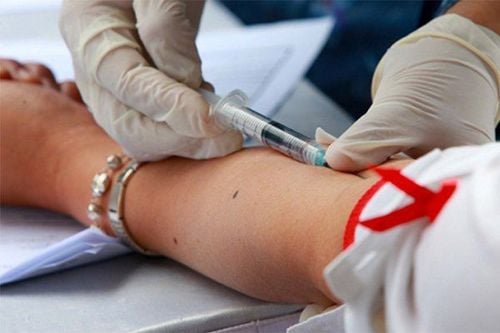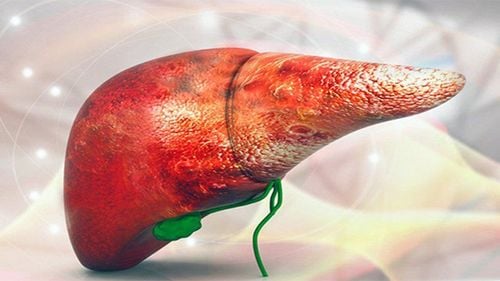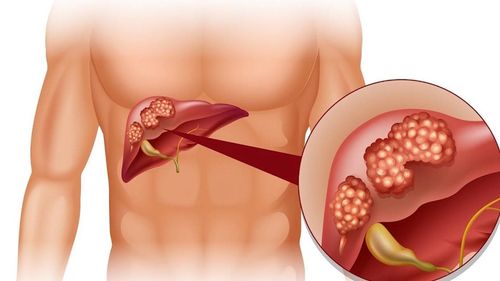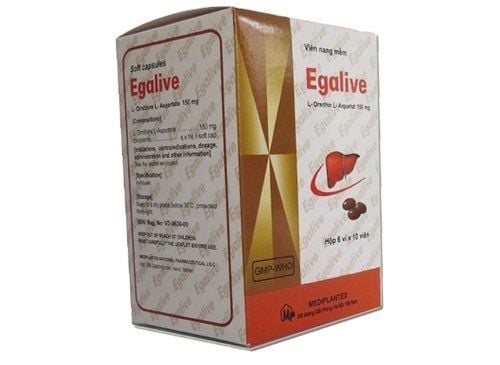This is an automatically translated article.
The SGOT test is a very commonly performed liver enzyme test, usually ordered in patients with suspected liver problems. The results of the SGOT test, along with other liver enzyme tests, play an important role in diagnosing the cause and severity of the disease.1. What is SGOT?
As the organ responsible for metabolizing substances in the body, the liver has a lot of enzymes (enzymes) that help catalyze biochemical reactions. Normally these enzymes are located inside the liver cells, when the liver cells are necrotic due to hepatitis, cirrhosis, liver cancer... these enzymes will spill into the blood, causing their concentration in the blood to increase.
Transamine or Aminotransferase are enzymes responsible for catalyzing the exchange of NH2 radicals between amines. SGOT (Glutamic-oxaloacetic transamine) also known as AST (Aspartate aminotransferase) is a transamine enzyme, abundant in the cytoplasm and mitochondria of many cell types, most notably liver cells, then cardiac muscle cells, skeletal muscle, kidney, brain, marrow, lung, white blood cells and red blood cells.

SGOT (Glutamic-oxaloacetic transamine)
2. What is the purpose of the SGOT test?
The SGOT test is not done alone but is often done with the SGPT test. SGPT (Glutamic-pyruvic transaminase) or ALT (Alanine aminotransferase) is a transamine enzyme concentrated mainly in liver cells. Based on the test results of liver enzymes increased more or less than normal values, SGOT or SGPT enzymes are more dominant, which will help doctors orient the diagnosis of causes of elevated liver enzymes.
The normal value of SGOT (AST) is between 20-40 UI/L, the value of SGPT (AST) is also between 20-40 UI/L, however depending on the test system there may be references different projection.
In addition to liver diseases, liver enzymes can also be elevated in other diseases besides the liver. If the liver enzyme test results are increased less than 5 times the upper limit of normal, and the SGOT index is > SGPT, the patient may be in a state of heavy physical activity, hypothyroidism, muscle diseases, etc. hemolysis,... If the SGOT enzyme index

Xét nghiệm men gan trong máu
If liver enzyme test results show elevated liver enzymes >1000 UI/L, it is possible that acute flares of hepatitis or abnormal disease are occurring.
If SGOT < SGPT: the patient may have liver damage due to anemia, hepatic artery ligation, Budd-Chari syndrome, acute biliary obstruction, cirrhosis, autoimmune hepatitis, acute viral hepatitis, hepatitis caused by hepatitis. drugs or toxins,... If SGOT > SGPT: the patient may have drug (or toxic) hepatitis on the background of alcoholic hepatitis, acute rhabdomyolysis, or an outbreak of Wilson's disease . Accurate levels of liver enzymes SGOT or SGPT do not correlate with the extent of liver damage or help with prognosis. As in hepatitis A, a patient's liver enzymes can become very high, sometimes up to thousands of UI/L, but most patients recover completely and leave no sequelae. While in patients with chronic hepatitis B, the elevation of liver enzymes is usually not high, but a proportion of people with chronic hepatitis B will progress to cirrhosis, liver cancer,...

Xét nghiệm SGOT giúp chẩn đoán sức khỏe của gan
3. Some common causes of elevated liver enzymes
Alcoholic liver disease: liver enzyme tests showed SGOT/SGPT >2 times, with an increase in GGT (Ɣ-glutamyl transferase, also a liver enzyme), blood cell analysis revealed an increase in red blood cell volume due to deficiency folic acid. Exploring the patient's history of chronic alcoholism. Hepatitis B and C virus: SGOT / SGPT test <1, patients have many risks such as drug use, multiple sex partners, injection, blood transfusion. To confirm the diagnosis, the patient needs to perform more tests such as HBsAg, antiHBs, BHV DNA, anti HCV, HCV RNA,... Drug-induced hepatitis: there are many drugs that cause elevation of liver enzymes such as Paracetamol, Diclofenac, Naproxen , Phenylbutazone, Phenytoin, Vaproic Acid, Tetracycline, Isoniazid, Trimethoprim, statins,... For drug-induced elevation of liver enzymes, liver enzymes will return to normal after a few weeks or months of stopping the drug. . When testing liver enzymes, patients need to inform the doctor about all the medicines they are using, including herbs, traditional medicines, functional foods,... This information can help the doctor make a diagnosis. cause and provide more precise treatment. Fatty liver disease: SGOT/SGPT liver enzyme test results <1, the patient has dyslipidemia, fasting hyperglycemia. Common in patients with obesity, dyslipidemia, diabetes. Wilson's disease: liver enzyme test SGOT/SGPT >2.2; 24-hour isouria >100μg, ceruloplasmin/blood <200 mg/L. Patients with copper accumulation in the body, cirrhosis, extrapyramidal disorders, hemolysis, kidney damage and Kayser-Fleischer rings in the eyes. Autoimmune liver disease: along with elevated liver enzymes is a condition of skin damage in the mucosa, kidneys, a common disease in women. For an accurate diagnosis, a kidney biopsy is required.

Xét nghiệm SGOT cần được thực hiện tại cơ sở y tế uy tín
Other common causes are hemochromatosis, myopathy due to heavy labor or the use of certain drugs that cause muscle lysis, hemolytic disease, α1-antitrypsin deficiency, Crohn's disease and ulcerative colitis colon ,...
Vinmec International General Hospital is one of the hospitals that not only ensures professional quality with a team of leading medical doctors, a system of modern equipment and technology, but also stands out. with comprehensive and professional medical examination, consultation and treatment services; civilized, polite, safe and sterile medical examination and treatment space. Customers when choosing to perform tests here can be completely assured of the accuracy of test results.
Customers can directly go to Vinmec Health system nationwide to visit or contact the hotline here for support.
MORE:
What is autoimmune hepatitis? Liver enzyme test Dangerous complications of cirrhosis













